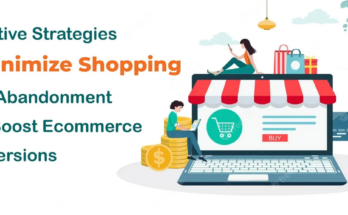In the dynamic world of e-commerce, choosing the right platform for your online business is a crucial decision. Among the myriad options available, Shopify stands out as a popular choice, but how does it fare against other e-commerce platforms? Let’s explore the features, flexibility, and considerations that can help you make an informed decision for the success of your business.
Shopify Overview:
Shopify stands out as one of the leading e-commerce platforms globally, catering to businesses of all sizes. Known for its user-friendly interface, robust features, and scalability, Shopify provides an end-to-end solution for setting up and managing online stores. From product listings and payments to shipping and analytics, Shopify simplifies the entire e-commerce process.
Pros of Shopify:
- Ease of Use: Shopify’s user-friendly interface allows even those with minimal technical expertise to set up and manage an online store efficiently.
- Scalability: Whether you’re just starting or have a well-established business, Shopify scales with your needs. It offers various plans, from basic to advanced, catering to businesses of all sizes.
- App Store: Shopify’s extensive App Store provides a wide range of apps and plugins to enhance your store’s functionality. This allows for customization and integration with third-party tools, optimizing your business operations.
- Security: Shopify prioritizes security, ensuring that customer data and transactions are protected through SSL encryption and compliance with PCI DSS standards.
Cons of Shopify:
- Transaction Fees: While Shopify offers competitive pricing, transaction fees can add up, especially for businesses with high sales volumes.
- Customization Limits: While Shopify is customizable, some businesses may find the platform’s design and layout limitations restrictive, particularly if they have specific branding requirements.
Other E-commerce Platforms:
Apart from Shopify, several other e-commerce platforms cater to different business needs. WooCommerce, Magento, and BigCommerce are noteworthy alternatives, each with its own set of strengths.
1. WooCommerce (WordPress):
Flexibility: WooCommerce, being a WordPress plugin, provides extensive flexibility and customization options. However, it requires more technical knowledge compared to Shopify.
Cost: WooCommerce is open-source and free, but additional costs may arise from hosting, themes, and plugins.
2. Magento:
Scalability: Magento is known for its scalability and is suitable for large enterprises. However, it demands a steeper learning curve and may be overwhelming for small businesses.
Cost: Magento is open-source, but costs can escalate for customization, hosting, and maintenance.
3. BigCommerce:
Built-in Features: BigCommerce offers a robust set of built-in features, eliminating the need for extensive third-party apps. However, the platform may be less intuitive for beginners.
Cost: BigCommerce may have higher upfront costs but can be cost-effective for businesses with significant sales.
Choosing the Right Platform for Your Business:
When deciding between Shopify and other e-commerce platforms, consider the following factors:
Business Size: The scalability and pricing of each platform vary, so choose one that aligns with your business size and anticipated growth. Shopify is an excellent choice for small to medium-sized businesses, while larger enterprises may find platforms like Magento or BigCommerce better suited to their needs.
Ease of Use: If you prioritize a user-friendly interface and quick setup, Shopify is a strong contender. However, if you have technical expertise and seek customization, WooCommerce or Magento might be worth exploring.
Budget Constraints: Evaluate the total cost of ownership, including platform fees, transaction fees, and additional expenses for themes and apps. Choose a platform that aligns with your budgetary considerations.
Conclusion:
Ultimately, the choice between Shopify and other e-commerce platforms depends on your specific business needs and goals. Each platform has its advantages and drawbacks, so it’s crucial to conduct thorough research and perhaps even test different platforms before making a decision. By understanding the features, scalability, and costs associated with each option, you can make an informed choice that propels your online business toward success.
At eDreamz, we make your dreams come true with a winning formula: high-quality services at prices that won’t pinch your wallet. Contact us at sales@edreamztech.com to turn your vision into reality.



